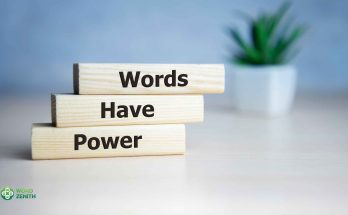With age, it’s common to worry about memory decline. But research indicates that regularly playing word games can improve memory and cognitive abilities for older adults. In this article, we’ll explore how word play helps seniors remember things better, examine scientific evidence supporting the claim and provide tips on how to make word play an everyday activity.
Understanding Memory Decline in Seniors
Before discussing the benefits of word play for memory enhancement, we need to understand why seniors experience memory decline. As we age, our brains undergo structural and functional changes. Some regions shrink causing a reduction in volume for memory-processing areas. Reduced blood flow to the brain along with amyloid plaques buildup and a decline in neurotransmitter levels can also contribute to cognitive issues.
One of the key aspects of age-related memory loss is a decrease in episodic memory, which allows us to recall specific events or experiences. Seniors may also struggle with working memory that’s essential for tasks requiring temporary storage or manipulation of information.
The Benefits of Word Play
Word play is any activity that involves manipulating words like crosswords, word searches, anagrams and word association games. These activities stimulate cognitive functions while providing several benefits for your mind and memories. Here are some ways that word play improves senior’ memories:
- Cognitive Stimulation: Word puzzles require active problem-solving skills and linguistic processing which forces you to think hard. This mental exercise maintains neural connections preventing possible shrinking while promoting neuroplasticity; your brain’s ability to reorganize itself.
- Vocabulary Expansion: Word puzzles expose you to new words and phrases expanding your vocabulary. Individuals with larger vocabularies typically have better cognitive function and perform better on memory tests too.
- Attention and Concentration: You need focused attention and concentration while playing most word games — crucial cognitive skills required for remembering things well. By engaging sustained attention during these games, seniors can also improve the ability to concentrate on tasks and decrease distractibility.
- Pattern Recognition: Many word games require pattern recognition and problem-solving skills such as anagrams and word searches. Regularly engaging in these activities improves your ability to identify patterns, which is beneficial for memory encoding and retrieval.
- Social Engagement: Word games are versatile; you can play them solo or with friends or family. The latter provides an opportunity for social interaction and engagement. Socialization has been linked to better cognitive health and can help mitigate the effects of isolation and loneliness, both risk factors for cognitive decline in seniors.
Scientific Evidence Supporting Word Play for Memory Enhancement
Several studies have investigated the impact of word puzzles on memory and cognition in seniors. Here are some key findings:
In a study published in the Journal of Aging and Mental Health, researchers found that older adults who played word puzzles regularly including crosswords and Sudoku had better cognitive function compared to those who didn’t play at all.
Research from the Journal of Experimental Psychology reveals that playing word association games can improve older adults’ verbal fluency and semantic memory. Older people who played these games found they performed far better during memory tests than those in control groups.
In another study featured in Neuropsychology Review, a systematic review of word play interventions on cognitive function among the elderly showed that such activities improved their language skills, attention and memory.
Neuroimaging studies also showed that increased activation in brain regions linked to language processing and memory encoding occurred during word play tasks among seniors. The functional magnetic resonance imaging (fMRI) studies provide insight into the science behind word play’s benefits for memory enhancement.
Word Play Integration Tips
If you’re looking to include word play activities in your daily routine, here are some handy tips to follow:
- Begin small: As with any activity, it’s always best to start simple. Small word play games will help establish a foundation for more complex ones.
- Allocate time: Schedule regular intervals for word play sessions throughout the day or week. Consistency is key to reaping the cognitive benefits of these activities.
- Change it up: Try using different puzzles and games to keep things fun and interesting. Crossword puzzles, anagrams, and interactive association games all provide diverse cognitive stimulation.
- Group participation: Get friends together for group sessions. Not only will this encourage social interaction, but mentally stimulate one another too.
- Combine physical exercise with mental activity: For a more intense workout, try solving crossword clues while stationary biking or walking while listening to an audiobook. This way you’ll be enhancing both mental and physical functions simultaneously.
- Use technology: Search online for digital platforms offering customizable difficulty levels and adaptive challenges tailored to individual preferences. These apps make life much easier when searching for specific puzzles or games suited towards varying skill levels.
Read More: From Word Games to Language Master: A Success Story
Word Play Activities Prove Beneficial
To put it simply, regularly participating in word-play activities provides numerous benefits when aiming to enhance memory and cognitive function in seniors. The brain gets stimulated through linguistic processing, pattern recognition and problem-solving. By implementing word-play games into daily routines, either individually or in social settings, memory decline rates can be reduced whilst overall cognitive health is improved.




